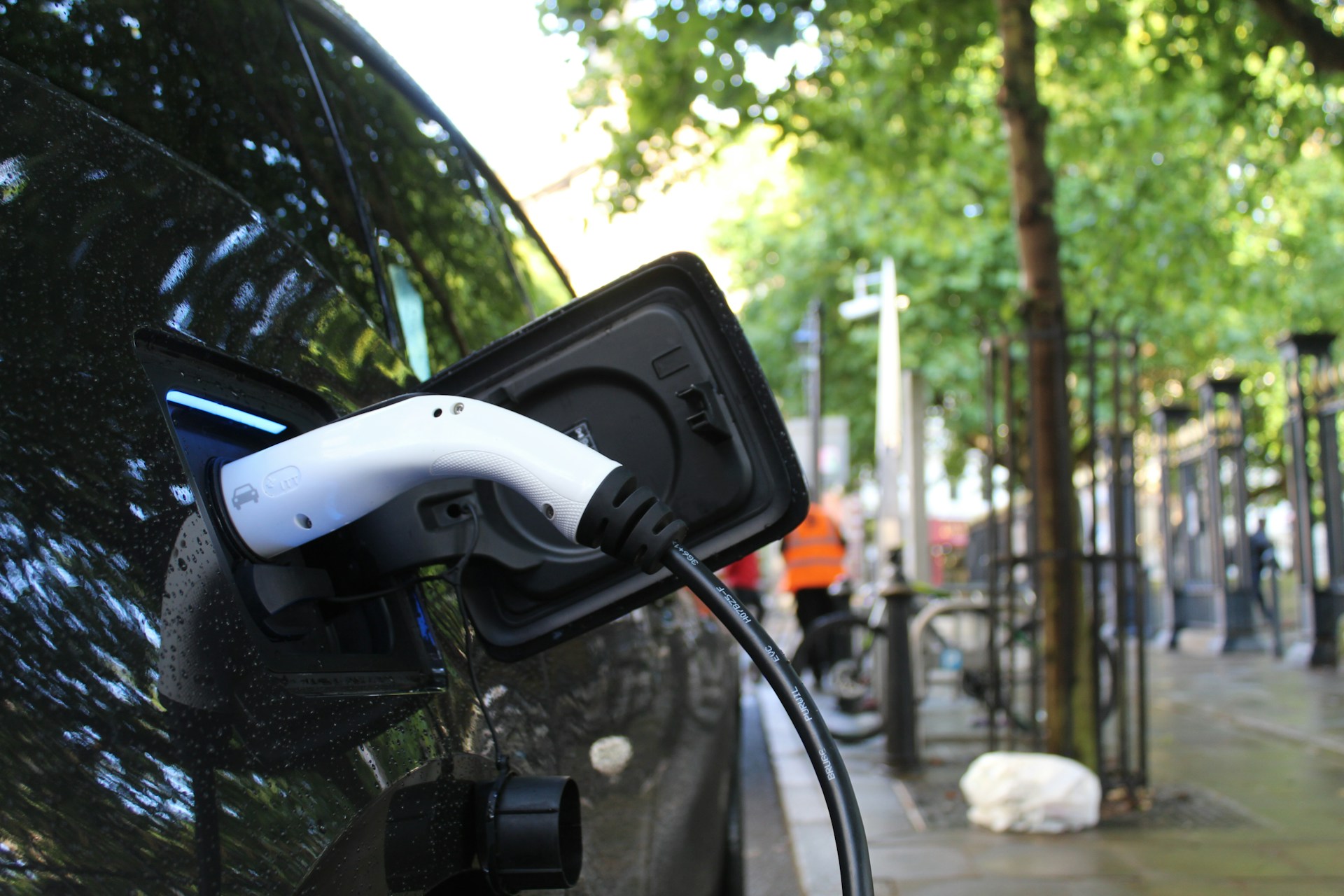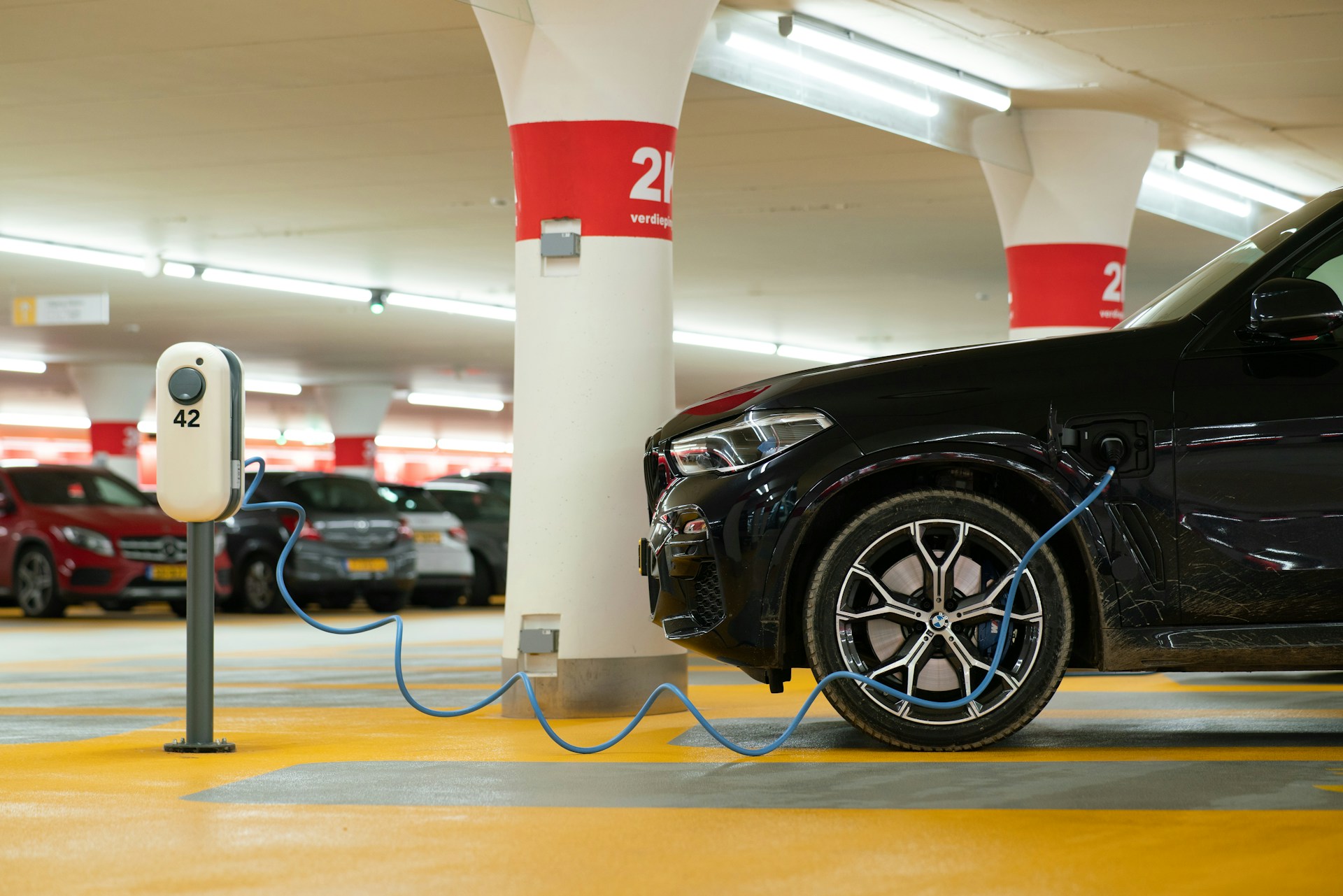
The Impact of Technology on Electric Vehicle Charging Stations
As governments and consumers prioritize sustainability and environmental consciousness, the adoption of EVs has surged, prompting the need for a robust infrastructure to support their growth.
Central to this infrastructure are electric vehicle charging stations, which serve as the backbone of the EV ecosystem. This article outlines the effect of technology on electric vehicle charging stations, exploring advancements, challenges, and the future trajectory of this critical component of the electrification revolution.
Evolution of Electric Vehicle Charging Stations
Electric vehicle charging stations have evolved significantly since the inception of electric vehicles. Initially, charging infrastructure was sparse and primarily consisted of a basic Level 1 charger, which utilized a standard household outlet and provided a low charging rate suitable for overnight charging. However, as EV adoption has accelerated, the demand for faster and more accessible charging solutions has driven innovation in charging station technology. Today, electric vehicle charging stations come in various forms and configurations, ranging from Level 2 AC chargers to high-speed DC fast chargers.
Level 2 chargers, which operate at higher voltages than Level 1 chargers, offer faster charging speeds and are commonly found in residential, workplace, and public charging settings. The reputable EV charger providers from BTC Power suggest opting for chargers equipped with intelligent features, such as RFID authentication, billing systems, and remote monitoring capabilities, to enhance user experience and operational efficiency. On the other hand, DC fast chargers, also known as Level 3 chargers, deliver rapid charging capabilities, enabling EV drivers to recharge their vehicles in minutes rather than hours. Advancements in battery technology enabled the development of high-capacity chargers capable of delivering rapid charging rates, significantly reducing charging times and improving the convenience of EV ownership.
Impact of Technology Advancements
Several vital areas highlight the impact of technology on charging infrastructure:
Charging Speed and Efficiency: One of the most significant advancements in electric vehicle charging technology is the development of high-speed DC fast chargers. These chargers utilize advanced power electronics and cooling systems to deliver rapid charging rates. Additionally, innovations in battery technology, such as lithium-ion batteries with higher energy densities, have contributed to faster charging speeds and increased efficiency.
Smart Charging Solutions: Integrating innovative charging technology into electric vehicle charging stations has revolutionized how EVs are charged and managed. Smart charging solutions leverage connectivity, data analytics, and cloud-based platforms to optimize charging processes, manage energy demand, and enable remote monitoring and control of charging stations. By leveraging real-time data and predictive analytics, intelligent charging systems can dynamically adjust charging rates, prioritize charging for renewable energy sources, and optimize grid integration, maximizing efficiency and minimizing costs for EV owners and grid operators.
Interoperability and Standardization: Ensuring interoperability and standardization across charging networks is essential for promoting widespread EV adoption and facilitating seamless charging experiences for drivers. Technology standards such as the Combined Charging System (CCS) and CHAdeMO have emerged as universal charging protocols, enabling compatibility between different EV models and charging infrastructure. Additionally, initiatives such as the Open Charge Point Protocol (OCPP) have promoted open-source communication protocols, fostering interoperability and enabling third-party developers to innovate and integrate with charging networks.

User Experience and Accessibility: Technology has also transformed the user experience of electric vehicle charging, making it more intuitive, convenient, and accessible. Mobile apps and digital platforms allow EV drivers to locate nearby charging stations, check availability, initiate charging sessions, and make payments seamlessly. Furthermore, advancements in user interface design and human-machine interaction have simplified the charging process, making it more user-friendly for drivers of all backgrounds.
Challenges and Opportunities
While technology has brought about significant advancements in electric vehicle charging infrastructure, several challenges persist, posing both obstacles and opportunities for further innovation:
Charging Infrastructure Deployment: Despite the rapid growth of electric vehicle sales, the deployment of charging infrastructure has not always kept pace with demand. Addressing this challenge requires concerted efforts from governments, utilities, and private stakeholders to invest in charging infrastructure deployment, particularly in underserved regions and high-traffic areas.
Grid Integration and Management: As the number of electric vehicles on the road rises, ensuring the reliable and efficient integration of EV charging with the electric grid becomes increasingly critical. Innovative grid technologies, demand response programs, and vehicle-to-grid (V2G) integration offer opportunities to optimize grid management, balance energy supply and demand, and support renewable energy integration.
Charging Network Roaming and Roaming Agreements: Enhancing interoperability and roaming capabilities between charging networks remains challenging, particularly for EV drivers undertaking long-distance travel. Establishing roaming agreements and interoperable payment systems can facilitate seamless cross-network charging experiences and enhance driver confidence in EV adoption.
Charging Infrastructure Equity: Ensuring equitable access to charging infrastructure, particularly in underserved communities and rural areas, is essential for promoting inclusive EV adoption and addressing transportation equity issues. Public-private partnerships, incentives for deploying charging stations in underserved areas, and community engagement initiatives can help bridge the charging infrastructure gap and promote EV adoption among diverse populations.
The Future of Electric Vehicle Charging
Ultra-Fast Charging: The development of ultra-fast charging technologies, such as 350 kW and higher charging stations, promises to reduce charging times further and enhance the viability of long-distance electric vehicle travel. Companies are investing in next-generation charging infrastructure capable of delivering ultra-fast charging speeds to meet the evolving needs of EV drivers.
Wireless Charging: Wireless charging technology enables EVs to recharge their batteries without needing physical cables or connectors and holds promise for enhancing convenience and user experience. Wireless charging systems installed in parking spaces, roadways, and even vehicle fleets offer the potential for seamless and effortless charging experiences, further accelerating the adoption of electric vehicles.
Vehicle-Grid Integration: Vehicle-to-grid (V2G) and vehicle-to-home (V2H) integration enables bidirectional energy flow between electric cars and the electric grid, allowing EVs to be distributed energy resources. By leveraging EV batteries for energy storage and grid stabilization, V2G and V2H technologies offer opportunities to support grid reliability, optimize energy management, and unlock new revenue streams for EV owners.
Automated Charging Solutions: Automated charging solutions, including robotic charging arms and valet parking systems, offer convenience and efficiency for EV owners by automating the charging process. These technologies streamline the charging experience, minimize human intervention, and optimize charging station utilization, paving the way for autonomous electric vehicle charging ecosystems.

As electric vehicles continue to gain momentum as a viable and sustainable transportation solution, the role of technology in shaping the future of electric vehicle charging infrastructure becomes increasingly pivotal. Technological advancements are revolutionizing how electric cars are charged, managed, and integrated with the broader energy ecosystem, from ultra-fast charging and wireless charging to intelligent grid integration and vehicle-grid integration. By addressing challenges, seizing opportunities, and fostering innovation, the electrification revolution promises to usher in a new era of clean, efficient, and accessible transportation powered by cutting-edge technologies and sustainable practices.







